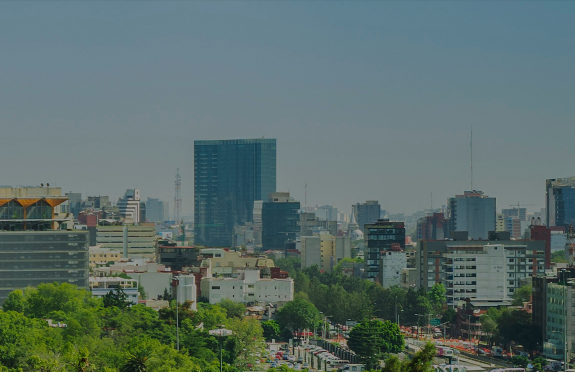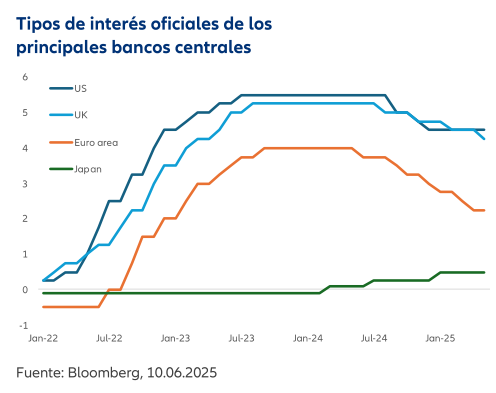The active ETF industry is undergoing rapid global expansion, and this growth is expected to continue for several years, driven by the advantages these investment vehicles offer to markets. This was the consensus view at the ETFs Summit organized by S&P Dow Jones and the Mexican Stock Exchange (BMV). It was discussed during the event that active ETFs may eventually take market share from instruments such as mutual funds and structured notes.
The summit addressed the future of ETFs, their role alongside other investment tools, and the factors that make them attractive—factors that are fueling the momentum of exchange-traded vehicles worldwide.
During the panel titled “The Evolution of Wealth Management in Mexico: Current Landscape and Future Direction,” moderated by Alicia Arias, Commercial Director at LAKPA and co-founder of Mujeres en Finanzas, Mexico chapter, with participation from Nicolás Gómez, Managing Director and Head of ETF (iShares) and Index Investments for Latin America at BlackRock, and Juan Hernández, Managing Director of Vanguard Latin America, the future of ETFs took center stage.
“Active ETFs are going to grow significantly, but not as substitutes for index ETFs—they will grow at the expense of the active mutual fund industry and the structured notes industry,” explained Gómez.
“I believe the reason for the strong growth of active ETFs comes from the world of Wealth Management, because the most important feature of mutual funds—the retrocession—is no longer necessary. So, if this is no longer needed, it’s possible to compare an institutional-class, clean-class active mutual fund with the same strategy in an active ETF,” he added.
What becomes apparent are the advantages of ETFs, the main one being intraday pricing. That is, they can be purchased at the quoted price at any moment. In contrast, with a mutual fund, it is impossible to know the purchase price at the time of the transaction, as it is neither the current price nor the end-of-day price, but rather the price on the next day. In this context, considering market volatility, trading mutual funds becomes extremely complex—essentially, trading blind, noted both panelists.
“That’s why, with retrocession no longer required, we’re going to see the active mutual fund industry shift toward active ETFs, as well as the structured notes industry—where with an ETF that replicates the same strategy, you have liquidity because it can be sold at any time,” added the BlackRock executive. He also pointed out that there is no counterparty risk, since “owning an ETF means owning the underlying assets—that is, the beta inside plus the listed options.”
Another relevant issue is mobility and market regulation. Currently, there are between $1.5 and $2 trillion in inflows to ETFs, compared to $400 million in outflows from mutual funds. Part of this involves conversions: managers have already converted millions of dollars from mutual funds into ETFs, including firms represented on the panel—iShares and Vanguard.
Of the 600 ETFs launched last year, 400 were active ETFs. The active management industry is innovating through ETFs, and experts pointed out that regulators are likely to approve the launch of new ETF series from within mutual funds. Once this happens, the vast majority of active mutual funds with commercial value will also offer an ETF version.
Crypto World and ETFs Also Expanding
In the cryptoasset industry, the growth outlook is also positive. This includes ETFs linked to this space. “Three dynamics are taking place: first, continued adoption by what we call the ‘whales’—people who have already made fortunes in crypto and, for example, hold bitcoin, and who are now beginning to prefer keeping their assets within an ETF alongside their bonds, stocks, etc.,” said Gómez.
“Second, the advisory world, which knows that bitcoin’s market capitalization stands at $2.2 trillion, is interested in incorporating bitcoin cryptoassets in portfolios to monetize them. The third dynamic is that the traditional financial industry increasingly understands bitcoin’s role in portfolios and its fundamentally different characteristics from the rest of the market. The supply is limited, for instance. It’s been a long journey, but various asset managers are now defining their strategies,” the panelist explained.
Thus, portfolio models must focus on behavioral aspects, wealth management, and financial planning, enabling financial advisors and asset managers to concentrate on activities that bring more value to investors.
Vanguard closed the panel with a figure that supports the trend, stating that in the United States, around 50% of all ETF flows originate from model portfolios—either proprietary or from different asset managers. This is a trend that will continue, and in this context, the presence and growth of the ETF market are undeniable.
The Future of Alternatives
Undoubtedly, the alternatives industry also has a promising future. Technology has driven its rise, and some semi-liquid funds are already appearing in the portfolios of individual investors. As highlighted at the S&P Dow Jones and BMV summit, these strategies have ceased to be almost exclusively for large investors. To put this in perspective, the industry is already worth nearly $20 trillion, with private equity accounting for 40%—up from $5 trillion just five years ago.
“It’s very important to note, however, that this is a different asset class. It has illiquidity. We’ve already seen this in the United States, and there is a liquidity premium. But just as important is the fact that there’s a significant dispersion in returns between the top managers, the average ones, and the lowest-performing ones,” said Hernández, Director of Vanguard Latin America.
“So yes, I would say alternatives are viable—but with careful allocation, because there is a liquidity premium, and investors must also ensure they have access to the best managers and products,” the executive concluded.











